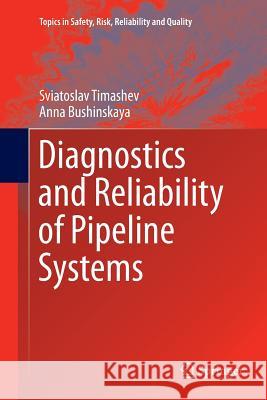Diagnostics and Reliability of Pipeline Systems » książka
topmenu
Diagnostics and Reliability of Pipeline Systems
ISBN-13: 9783319797656 / Angielski / Miękka / 2018 / 407 str.
Kategorie:
Kategorie BISAC:
Wydawca:
Springer
Seria wydawnicza:
Język:
Angielski
ISBN-13:
9783319797656
Rok wydania:
2018
Wydanie:
Softcover Repri
Ilość stron:
407
Waga:
0.60 kg
Wymiary:
23.39 x 15.6 x 2.24
Oprawa:
Miękka
Wolumenów:
01











